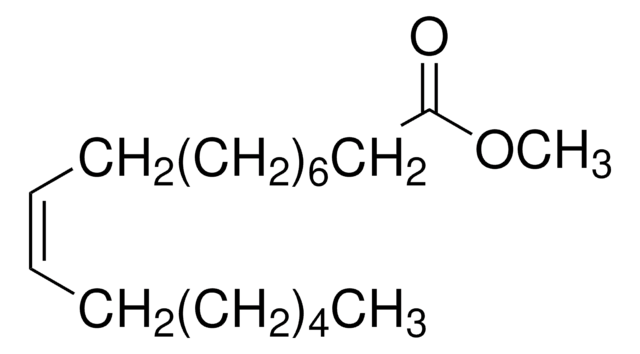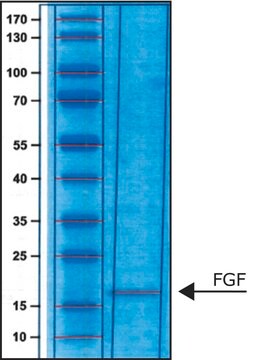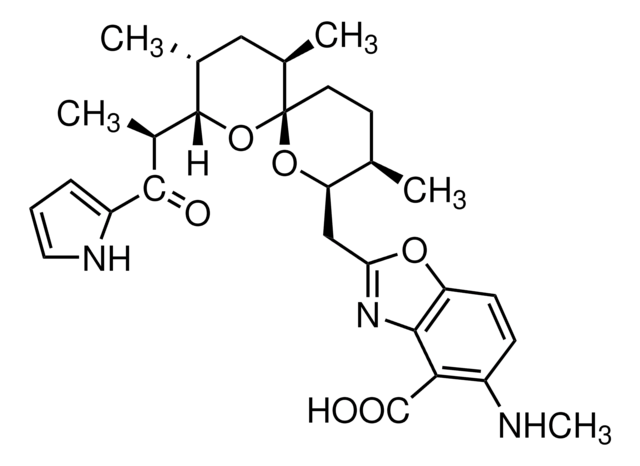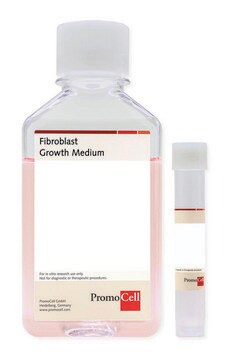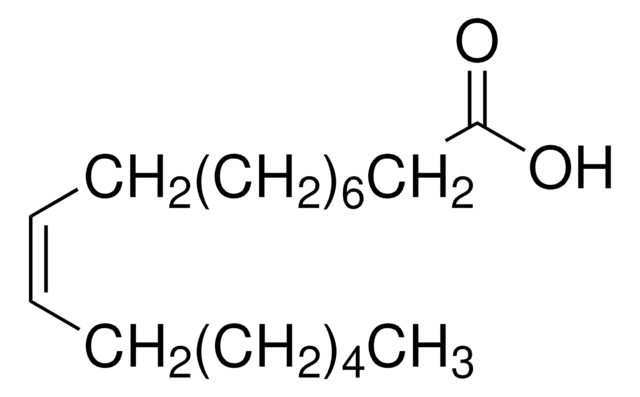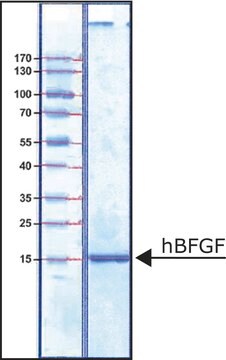F6926
Fibroblast Growth Factor-8b from mouse
>97% (SDS-PAGE), recombinant, expressed in E. coli, lyophilized powder
Synonyme(s) :
FGF-8b
About This Item
Produits recommandés
Source biologique
mouse
Niveau de qualité
Produit recombinant
expressed in E. coli
Pureté
>97% (SDS-PAGE)
Forme
lyophilized powder
Puissance
15-60 ng/mL
Poids mol.
calculated mol wt 23.6 kDa
predicted mol wt 22 kDa
Conditionnement
pkg of 25 μg
Conditions de stockage
avoid repeated freeze/thaw cycles
Impuretés
endotoxin, tested
Numéro d'accès UniProt
Température de stockage
−20°C
Informations sur le gène
mouse ... Fgf8(14179)
Description générale
Application
- for subgerminal cavity injection in fertilized quail, chicken, turtle and emu eggs
- in the induction of neural differentiation in stem cells from Human Exfoliated Deciduous teeth (SHED) and
- in experiments conducted on fertilized hens′ eggs, where FGF8 induced SOX3 gene.
Actions biochimiques/physiologiques
Forme physique
Remarque sur l'analyse
Mention d'avertissement
Warning
Mentions de danger
Conseils de prudence
Classification des risques
Eye Irrit. 2 - Skin Irrit. 2
Code de la classe de stockage
11 - Combustible Solids
Classe de danger pour l'eau (WGK)
WGK 3
Point d'éclair (°F)
Not applicable
Point d'éclair (°C)
Not applicable
Équipement de protection individuelle
Eyeshields, Gloves, type N95 (US)
Certificats d'analyse (COA)
Recherchez un Certificats d'analyse (COA) en saisissant le numéro de lot du produit. Les numéros de lot figurent sur l'étiquette du produit après les mots "Lot" ou "Batch".
Déjà en possession de ce produit ?
Retrouvez la documentation relative aux produits que vous avez récemment achetés dans la Bibliothèque de documents.
Articles
Fibroblast growth factors in cell culture and various growth factors for your research
Notre équipe de scientifiques dispose d'une expérience dans tous les secteurs de la recherche, notamment en sciences de la vie, science des matériaux, synthèse chimique, chromatographie, analyse et dans de nombreux autres domaines..
Contacter notre Service technique